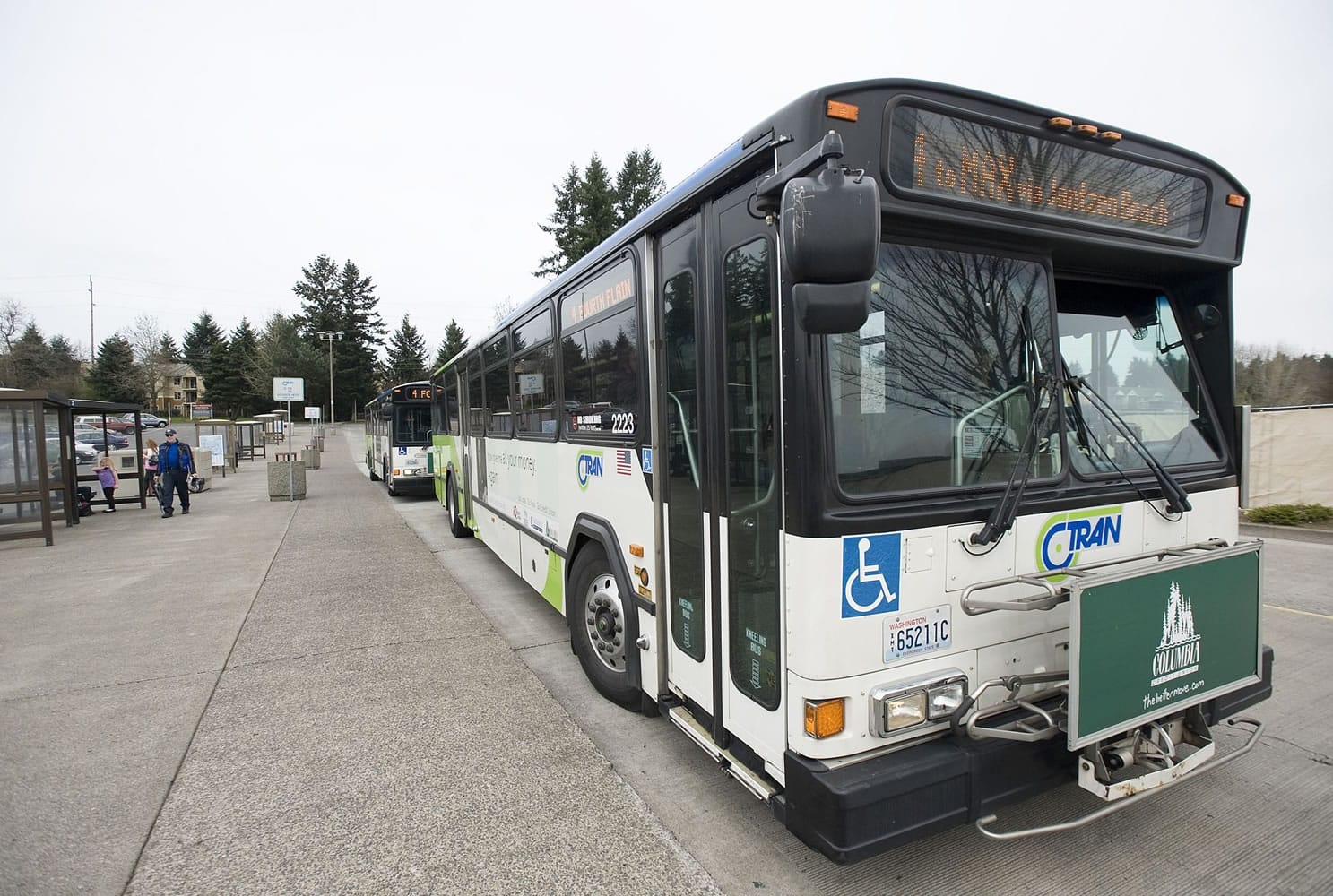Call it a debate of fair versus feasible.
Here’s the question: Should C-Tran ask its entire service area to pay for operating light rail and bus rapid transit systems in Vancouver? Or, should it ask only those closest to it — and perhaps more likely to support it — even if it means asking those residents to pay a little more?
C-Tran board members tackled those and other questions as they began to map out the agency’s future during a work session meeting Friday. After last month’s passage of Proposition 1 — a sales tax hike that paid for existing bus service — leaders are focusing on a measure planned for November 2012. That measure would pay to operate a proposed bus rapid transit system in Vancouver as well as light rail that would come into downtown with the Columbia River Crossing.
But for much of the last year, exactly who would be asked to vote on that tax was uncertain. C-Tran leaders have wrestled with whether to put the vote to the agency’s entire service area, or a smaller subdistrict — likely Vancouver or its urban growth boundary.
“It’s a tough issue,” said Vancouver City Councilor Larry Smith, one of nine C-Tran board members. “It’s a very tough issue.”
The outcome could have big implications on how the 2012 vote looks. A district-wide vote would mean the agency asking voters for an additional 0.1 percentage point in the local sales tax. A Vancouver-only vote would likely mean 0.2 percentage points.
The latter option would leave Clark County’s smaller cities without a direct say in funding light rail operations. But it would also leave them out of the higher sales tax if the measure passed.
Any increase passed next year would stack on top of the 0.2 percentage point sales tax bump voters approved last month.
C-Tran board members are far from a decision. They have to take the question back to their respective councils, then return and vote as a group. But Friday’s wide-ranging discussion covered plenty of arguments on both sides.
Clark County Commissioner Steve Stuart offered a reason to open the vote to the entire service area, saying new high-capacity transit systems will have impacts well outside Vancouver’s city limits, and those residents should have a say. C-Tran Executive Director Jeff Hamm gave an example: The arrival of those options could free up resources to boost bus service elsewhere.
“We are one system,” Stuart said. “We are an interconnected system, and we all benefit from the success of the other parts.”
Vancouver Mayor Tim Leavitt argued the opposite approach, noting that the issue lands closer to home for his city. And local leaders should try to ensure the success of Columbia River Crossing plans they agreed to more than three years ago, he said.
Leavitt acknowledged the higher tax rate in a subdistrict vote “could be a tougher sell.” But, he added, “Our folks are more directly receiving a benefit.”
C-Tran leaders have said they took the success of Prop. 1 as a positive sign for next year. The measure found its strongest support in Vancouver, passing by a margin of nearly 57 percent to 43 percent within city limits, according to data from the county elections office.
La Center Mayor Jim Irish brought up what’s likely a common sentiment among CRC opponents: Next year’s vote would be their referendum on the project itself, an “up or down” vote on light rail.
It will play a role in securing the $850 million check the feds will have to write to fund the capital cost of building the light rail extension, Hamm said. The region will have to demonstrate it can maintain the system once it’s in place, he said.
But Leavitt made it clear he doesn’t think a local tax measure — raising $2 million to $3 million — is going to decide the fate of a more than $3 billion project.
“There is no way that the community leadership is going to let this opportunity pass us by,” Leavitt said. “We’d be sacrificing future generations’ economic prosperity.”
But Leavitt added this caveat, in the event that next year’s measure fails:
“There has to be a back-up plan,” he said.
The agency will have to decide how to frame the measure before a July deadline to place it on the November ballot. Meanwhile, a state-appointed expert review panel required by law will review C-Tran’s high-capacity transit plans.
Of course, a lot can change on the political and economic landscape in the next year. Stuart cautioned against making any assumptions.
“I think it’s incredibly dangerous to presume the will of the voters,” he said.
Eric Florip: 360-735-4541; http://twitter.com/col_enviro; eric.florip@columbian.com.




